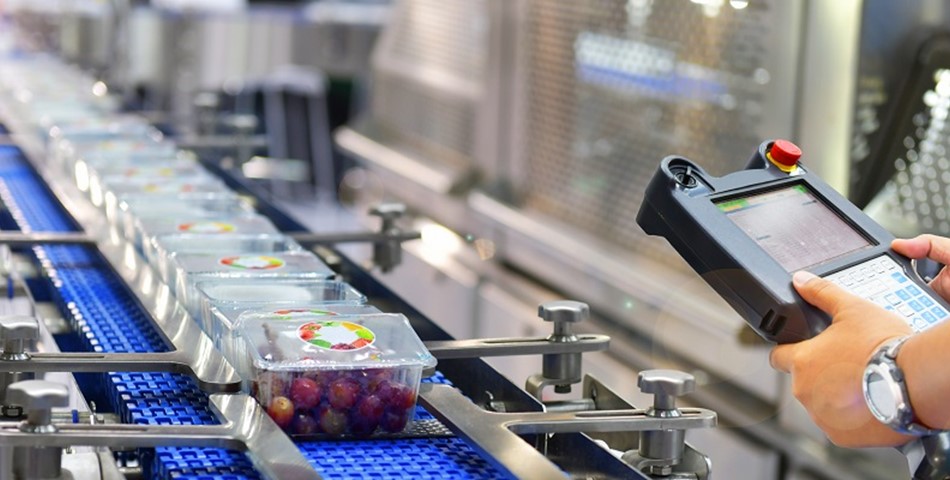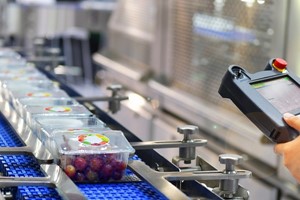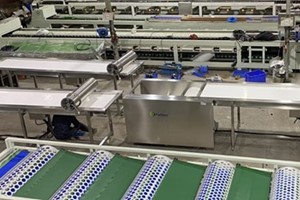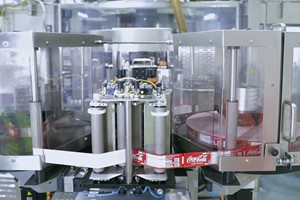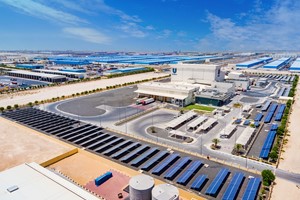Industry will move beyond conventional competitive pricing models such as subscription-based and pay-per-use offerings
The Gulf Cooperation Council (GCC) food and beverage (F&B) industry is expected to grow steadily year-on-year.
The industry, with its numerous applications and sub-application segments, is considered to be cost-competitive, and increasing overall profitability without compromising on quality is the key objective for most F&B companies across value chain segments. Various methods are being adopted to increase process efficiency, production speed and quality control.
However, with increasing competition and probable skilled-labor shortages, increased production speed and overall profitability have become vital for the continued existence of market participants.
While automation technologies are not new in the GCC F&B industry, their importance has increased drastically in the past three years and they have become a necessity for food processing, production and packaging.
The food retail and delivery segment is a classic example of how automation and digitization have transformed the landscape. App-based delivery systems, contactless delivery and seamless integration of deliveries have substantiated the importance of Zomato and Deliveroo. This can be attributed to various factors, including increasing customer awareness and demand for quality food products, rising emphasis on health and wellness, and the expanding number of market participants, highlighting the importance of product differentiation and brand awareness and recall.
It has been noted that automation and digitization are key trends that govern not only food production and processing steps in the value chain but have a widening impact across other value chain networks (from farm to fork). Companies are aware that they should evolve to meet consumer needs and demands, and it’s evident that automation and digitization play a vital role. In a food processing setup, this means ensuring that the entire value chain and production process is in line with end-user needs. With ever-changing customer requirements, we can expect rapid evolution of automation technologies and a rise in adoption across the globe, especially as companies try to develop new and innovative products to ensure continued market share and growth.
As the GCC food industry witnesses a rise in demand for processed food options, there is increased focus on food security and safety, and companies are looking into automation as a way to achieve quality control and prevent errors due to mishandling and contamination. Digitization and automation have also helped improve supply chain transparency, aiding companies to achieve food safety.
The GCC industrial automation sector is one of the most advanced, and the F&B industry is poised to reap the benefits of these advancements as companies customize them to their operations and processes. Automation no longer means upgrading existing equipment and buying new equipment, and being dependent on only electronics and computers; it involves integration and convergence of technologies, including data analytics, sensor fusion, industrial 5G, artificial intelligence (AI), smart mobility and diagnostic techniques, to name a few. Connected devices and Industrial Internet of Things (IIoT) have taken automation a step ahead and transformed the way companies are approaching it. Most food processing units in the GCC region already use fully automated ovens, processers, cold chain units and linear devices and are looking to adopt connected devices and remote control systems.
Digitization has become a key enabler for automation, and data is considered one of the key strategic assets by stakeholders in the industry that can help them gain market leadership and increase visibility and brand recall. Companies are realigning their strategies to match opportunities that have become evident due to the rising adoption of IIoT and Industry 4.0. AI is expected to be a key driver of increasing operational productivity by improving workforce productivity by shifting the focus to value-added jobs from monotonous ones. The data and analytical capabilities can help in targeted product development.
The digital twin, with its ability to accurately predict the current and future state of physical assets, can help streamline the complex value chain networks and make remote troubleshooting a possibility and also result in accurate decision-making. It can help the F&B industry overcome issues of counterfeiting, improve traceability and also alleviate food safety concerns. Additive manufacturing technologies are expected to be key in the F&B industry. While the potential use of 3D printing for testing and R&D is expected to increase, its adoption for mass production remains to be seen considering the cost-competitive nature of the F&B industry.
The adoption of intelligent systems that have sensory and context-aware capabilities has enabled remote operations with minimal errors. It has also made traceability and transparency easily achievable, in line with the food safety protocols and requirements. Global majors are also deploying cognitive platforms into their automated processes and protocols to further reduce the margin of error and improve quality control and traceability. Other technologies, such as edge computing, blockchain, robotics, cybersecurity, etc., are expected to change the way F&B companies operate.
Automation and digitization have resulted in the emergence of new business models, apart from the conventional competitive pricing models such as subscription-based models and pay-per-use offerings. The use of automation and digital technologies has further increased the type of stakeholders in the traditional F&B value chain networks. Apart from automation majors, digital platform developers are also expected to play a role in the future F&B innovation ecosystem.
A classic example is the strategic deal between GE Digital and Obeikan Investment Group in 2017. The foundation and adoption of Industry 4.0 technologies can help lead the F&B industry to the adoption of Industry 5.0 in the near future. Increased man-machine interactions facilitated by human intelligence (skilled workforce) with cognitive computing can help F&B companies redefine their production processes as the focus shifts from product differentiation and satisfying customer needs to personalization and enhancing customer experiences.
Aarthi Janakiraman
Research Manager, TechVision, Frost & Sullivan
www.frost.com




